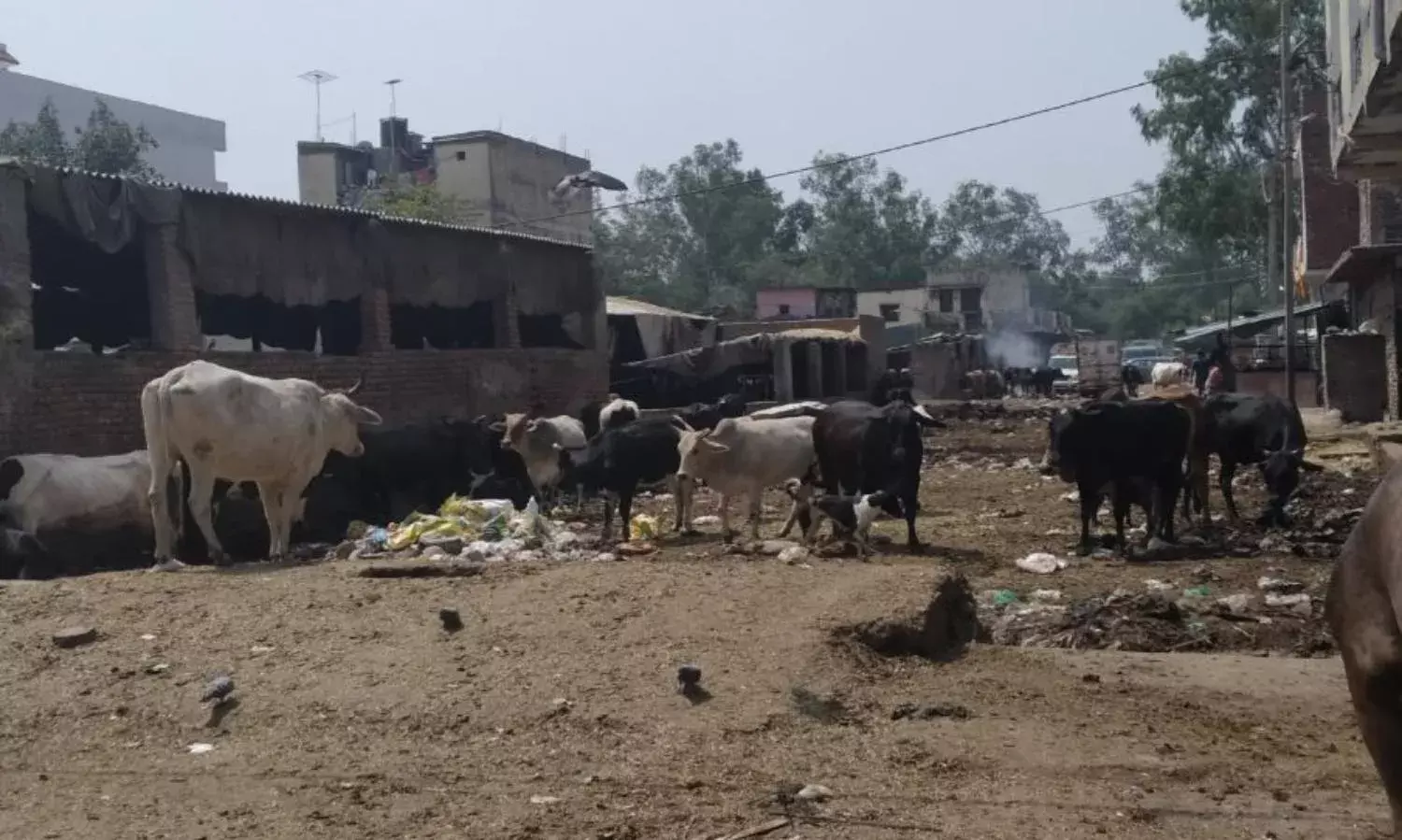Panopticow: Delhi Government Plan to Microchip Stray Cattle Delayed
The government has already identified almost all dairy animals by using ear tags

NEW DELHI: The Delhi government is looking for companies that can produce microchips to be used for the identification and monitoring of dairy animals in the city, according to a senior veterinarian associated with the proposed scheme.
As per officials who are privy to government plans, injecting microchips will eventually enable tracking the population and health of all animals in the city.
Although seen as a step towards resolving the stray cattle menace in parts of the city, the implementation of the idea, announced last January, has seen no breakthrough to date.
A government official who did not wish to be named as they are not authorised to speak to the media, said the delay was due to the lack of companies in the city who can take up the project on such a large scale.
“One or two companies gave a presentation, but their plan was not foolproof,” he said.
He does not believe the process can be started ahead of the next assembly elections in January or February. “A separate budget is required for the scheme, which can now only be done in the next term,” said.
The Aam Aadmi Party government announced the programme in January this year, under the New Animal Health and Welfare Policy 2018.
The Delhi High Court had also intervened in the matter of stray cattle in April, asking the government to fix the problem urgently.
Officials said the government has already identified almost all dairy animals in the city by using ear tags, in accordance with the High Court’s instructions.
However, the new mechanism of planting microchips is supposed to be more reliable than ear tags, which are easily detachable.
It is also believed that the chips will help tackle the spread of viral diseases like foot and mouth disease and brucellosis.
Veterinary doctors Abid and Keshav Kumar Sharma said that while these diseases might spread more inside dairies and sheds, where the cattle live in a shared environment, the root cause of the diseases is brought from outside.
The injected microchips would prevent the mixing of stray cattle with those housed in dairies and sheds, and may make it easier to monitor cattle vaccination records.
But above all, as an official in the Delhi government’s animal husbandry unit said, the monitoring of domesticated animals inside homes, dairies and sheds will lead to a decrease in the number of stray animals on the roads.
“The Municipal Corporation of Delhi is capturing stray cattle on a daily basis, but people also abandon animals regularly. This cycle is the primary cause for the cattle on the roads. The microchips will help stop this. In a month or two after they are implemented, there won’t be any stray cattle,” he said.
A senior official from the North Delhi Municipal Corporation said the aim is to inject microchips inside every dairy animal in the city. “Once this is done, there won't be any stray animals on the roads, and if there are, we can identify the owner and jail them,” he said.
Other benefits according to the official include tackling cattle theft, verifying false insurance claims, and monitoring the number of dairy animals in the city. He said the mechanism is already working in Goa and Gujarat.



